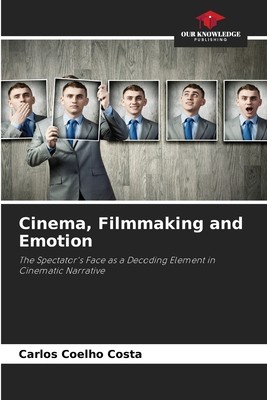
- We will send in 10–14 business days.
- Author: Carlos Coelho Costa
- Publisher: Our Knowledge Publishing
- ISBN-10: 6207775937
- ISBN-13: 9786207775934
- Format: 15.2 x 22.9 x 0.7 cm, softcover
- Language: English
- SAVE -10% with code: EXTRA
Reviews
Description
Film has the ability to induce and manipulate emotions in viewers by influencing their psychological state, so filmmakers need to use specific mise-en-scène structures according to their story (Munstenberg, 1970). The research developed in this book seeks to question part of the relationship between the mise-en-scène and the emotional reaction of viewers in a film narrative. At the center of our reflection is the question of the correspondence, in a film genre, between the rules of creation and the emotional effects reflected in the spectator's facial expressions. Based on a review of the literature on two conceptual areas, facial expressions and the theory and practice of cinema, the aim is to understand whether the emotional reaction of the spectators corresponds to what the director wanted when planning the cinematographic work.
EXTRA 10 % discount with code: EXTRA
The promotion ends in 18d.06:59:09
The discount code is valid when purchasing from 10 €. Discounts do not stack.
- Author: Carlos Coelho Costa
- Publisher: Our Knowledge Publishing
- ISBN-10: 6207775937
- ISBN-13: 9786207775934
- Format: 15.2 x 22.9 x 0.7 cm, softcover
- Language: English English
Film has the ability to induce and manipulate emotions in viewers by influencing their psychological state, so filmmakers need to use specific mise-en-scène structures according to their story (Munstenberg, 1970). The research developed in this book seeks to question part of the relationship between the mise-en-scène and the emotional reaction of viewers in a film narrative. At the center of our reflection is the question of the correspondence, in a film genre, between the rules of creation and the emotional effects reflected in the spectator's facial expressions. Based on a review of the literature on two conceptual areas, facial expressions and the theory and practice of cinema, the aim is to understand whether the emotional reaction of the spectators corresponds to what the director wanted when planning the cinematographic work.


Reviews